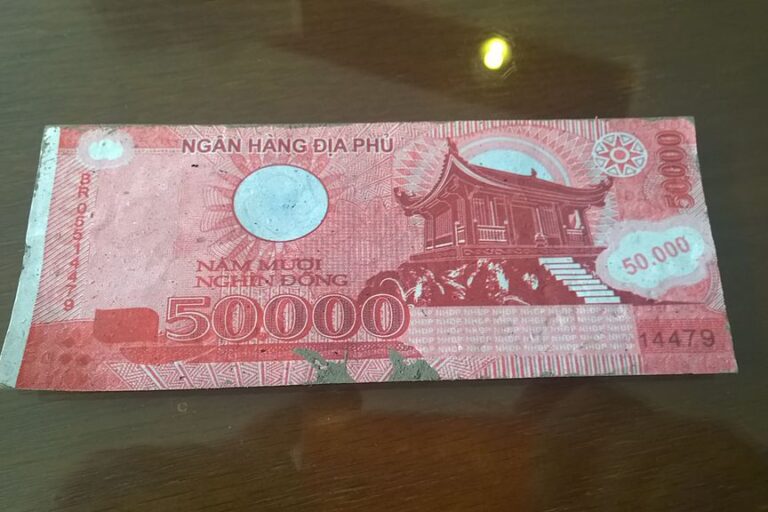Vietnam, with its rich history and vibrant culture, offers unforgettable experiences for visitors. Whether you’re planning a trip or sending money to family and friends there, understanding the Vietnamese dong (VND) is crucial.
Here’s everything UK travellers need to know about Vietnam’s currency, from its denominations to practical tips for using it.
A Brief History of the Vietnamese Dong
The Vietnamese dong (₫) was introduced in 1946, replacing the French Indochinese piastre. Over the decades, the dong has undergone several reforms:
- 1950s: North and South Vietnam issued separate currencies.
- 1975: After the fall of Saigon, South Vietnam’s currency was replaced by the liberation dong.
- 1980s: The dong was revalued to address inflation, with 1 new dong equalling 10 old dong.
About the Official Currency of Vietnam
The dong is issued by the State Bank of Vietnam. Its symbol is ₫, and its currency code is VND. The dong is primarily a banknote currency, with coins rarely used due to their low value.
Banknotes
- Cotton Notes: ₫100, ₫200, ₫500, ₫1,000, ₫2,000, ₫5,000
- Polymer Notes: ₫10,000, ₫20,000, ₫50,000, ₫100,000, ₫200,000, ₫500,000
Coins (rarely used)
- ₫200, ₫500, ₫1,000, ₫2,000, ₫5,000
Fun Facts About the Vietnamese Dong
1. A Millionaire in Vietnam Doesn’t Mean Wealth
With one of the world’s lowest-valued currencies, 1 million VND equals roughly £31, making tourists “millionaires” on arrival.
2. Coins Are Rarely Used
Though coins remain legal tender, their low value and limited production since 2003 mean they are seldom accepted.
3. Ho Chi Minh Is on Every Note
Every denomination of Vietnamese dong features Ho Chi Minh, the revolutionary leader known as “Uncle Ho.”
4. Notes Come in Two “Families”
- Cotton Notes: Low-value notes (₫100 to ₫5,000) are fragile and often damaged.
- Polymer Notes: Higher-value notes (₫10,000 and up) are durable, water-resistant, and widely used.
5. Handling High-Denomination Notes Requires Care
Polymer notes can stick together, and street vendors often lack change for large denominations. Keep higher-value notes separate to avoid overpaying.
Understanding the VND Exchange Rate
Exchange rates for the Vietnamese dong fluctuate daily. Here’s an approximate guide to popular currency pairings as of June 2024:
- 1 GBP ≈ ₫32,452
- 1 EUR ≈ ₫27,645
- 1 USD ≈ ₫25,471
Check live rates using an online currency converter or your preferred money transfer app.
Tips for Spending Money in Vietnam
- Cash Is Essential: While credit cards are accepted in cities like Hanoi and Ho Chi Minh City, cash is preferred in rural areas.
- Use ATMs for Cash Withdrawals: ATMs are widely available in urban centres and offer competitive exchange rates.
- Avoid Large Denominations: Carry smaller notes for day-to-day transactions, especially when dealing with street vendors.
Sending Money to Vietnam
To send money to Vietnam, services like Remitly offer fast and affordable options. You can send GBP to VND directly to bank accounts, cash pickup locations, or mobile wallets.
Remitly’s transparent fees and competitive exchange rates make it a trusted choice for international transfers.
